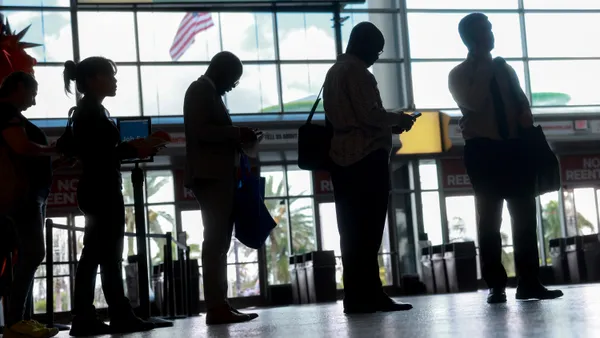Dive Brief:
- U.S. employers have expanded the diversity of new staff in accounting and finance, with the portion of Black or African American, Asian or Pacific Islander, and Hispanic or Latino hired at organizations rising to 34.8% in 2020 from 30.1% in 2018, according to the Association of International Certified Professional Accountants (AICPA).
- Diversity in hiring in 2020 increased to a record level in AICPA research dating to 1971, the association said in a report on an annual survey.
- Efforts to promote diversity “are critical because we believe a workplace that is reflective and inclusive of the global communities it serves is greatly positioned to innovatively solve the complex issues facing clients and the evolving public interest,” according to Jan Taylor, a senior director and academic in residence at AICPA.
Dive Insight:
Both industry associations and federal regulators are encouraging companies to make workforce diversity one of their top priorities.
The Business Roundtable, made up of large U.S. companies with 20 million employees and more than $9 trillion in total annual revenue, has committed to increasing diversity and providing metrics on the demographics of corporate boards, senior executives, workforces and suppliers.
Securities and Exchange Commission (SEC) Chair Gary Gensler has called workforce a critical asset of growing interest to investors and has asked agency staff to recommend disclosure mandates on specifics such as employee diversity, compensation and turnover.
The SEC in August backed a Nasdaq rule that listed companies include on their boards at least one woman director and someone who is a racial minority or who self-identifies as lesbian, gay, bisexual, transgender or queer.
Nasdaq requires companies to annually report on the demographics of their boards. Those that fall short of the rule on board composition must provide an explanation for not doing so in their proxy statements or on their websites.
The AICPA also found in its survey that hiring of new accounting graduates fell by 10 percentage points in 2020, the first year of the pandemic.
“There are challenges in the CPA pipeline that the pandemic accelerated including, for example, students taking a ‘gap year’ and then failing to return to university, challenges of having small children at home while attending school and/or working, and students looking for careers with flexibility and mobility, and not understanding that the CPA profession offers both,” Taylor said in an email response to questions.
Hiring in 2020 of new graduates who concentrated on subjects other than accounting and finance surged by 10 percentage points to 42.7%, the AICPA said.
Graduates with degrees in information management and technology assurance are especially attractive to employers building their accounting and finance staff, Taylor said.
“Businesses increasingly want information and insight that can help shape their decision-making,” Taylor said, noting “the advanced technological and data-driven skills needed by accounting professionals and, specifically, by CPAs.”
“The rapid pace of technological innovations — from automation to artificial intelligence — is having a profound impact on the accounting profession,” she said. “With more use of cloud-based accounting technology and new service lines such as financial planning and analysis for smaller companies, there definitely is a need for staff skilled in data analysis.”
Technology skills are increasingly valuable for a CFO, according to recent research from advisory services and technology companies.
“It’s becoming evident that CFOs with non-traditional skills or responsibilities are needed to shape a successful future,” according to Sage, a technology company that polled 1,900 finance leaders in several industries and countries.
“The CFO has become a hub of business information, diversifying their expertise, recruiting the right talent and ensuring they implement emerging technologies and purpose-driven programs to remove friction and deliver insights,” Sage said.
















